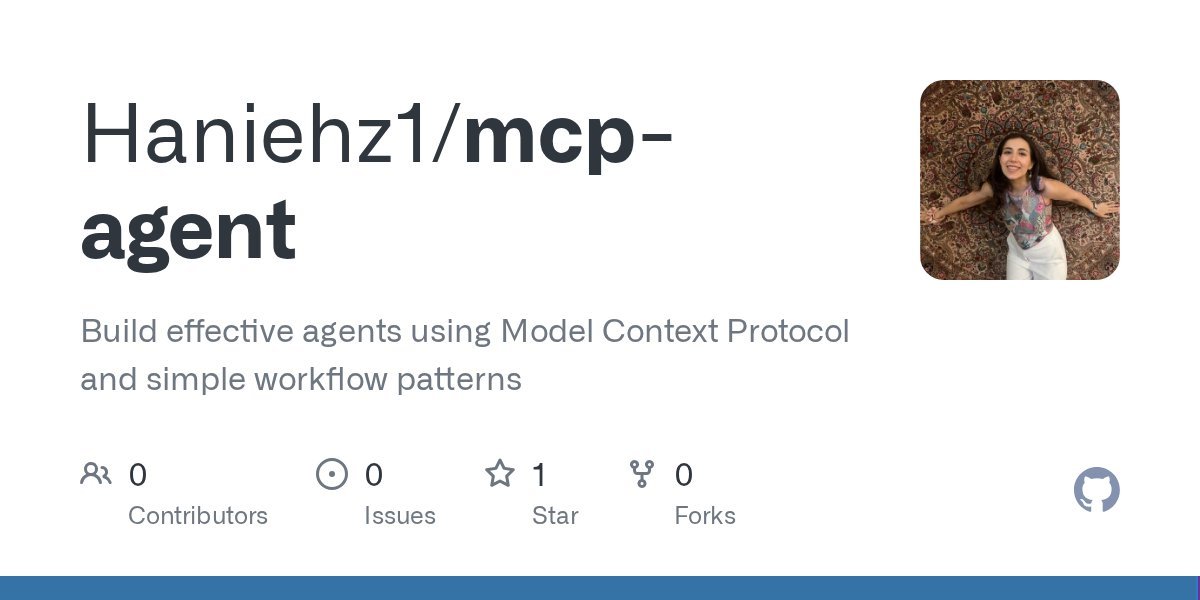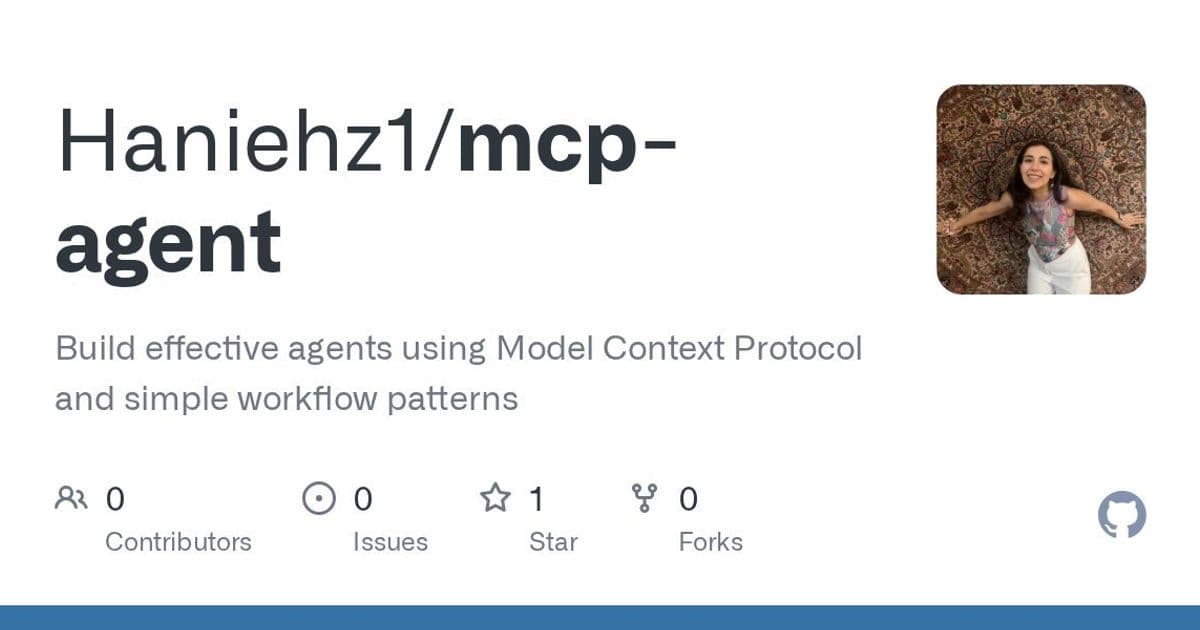Anthropic-inspired mcp-agent framework brings composable patterns and production-grade durability to AI agent development using Model Context Protocol. This Python toolkit simplifies building agents that leverage tools like filesystems and web APIs while enabling enterprise features like Temporal-based workflow recovery.

Developers now have a powerful new framework for building sophisticated AI agents that seamlessly integrate with external tools and services. mcp-agent, recently open-sourced on GitHub, implements the emerging Model Context Protocol (MCP) standard while incorporating battle-tested patterns from Anthropic's research on effective agent architectures.
The MCP Revolution
At its core, mcp-agent handles the complex orchestration required when connecting LLMs to external resources:
from mcp_agent.app import MCPApp
from mcp_agent.agents.agent import Agent
app = MCPApp(name="document_agent")
async with app.run():
agent = Agent(
name="researcher",
instruction="Analyze documents using web and filesystem access",
server_names=["fetch", "filesystem"]
)
# Agent operations here
Key advantages include:
- Composable patterns like map-reduce, router, and evaluator-optimizer workflows
- Full MCP implementation handling authentication, tool discovery, and server lifecycle
- Production durability through Temporal workflow engine integration
- Cloud-native deployment with secrets management and observability
Why This Matters for Developers
Unlike fragmented AI toolkits, mcp-agent provides a unified approach:
"Teams pick it because it's composable – every pattern ships as reusable workflow you can mix and match. It's MCP-native so any MCP server connects without custom adapters, and production-ready with Temporal-backed durability" explains the project documentation.
{{IMAGE:3}}
The framework implements all patterns from Anthropic's influential Building Effective Agents guide, including:
- Parallel specialists for divide-and-conquer tasks
- Intent classifiers routing requests to appropriate tools
- Orchestrator-workers coordinating multi-agent workflows
- Evaluator-optimizer loops for quality refinement
Enterprise-Grade Features
mcp-agent shines in production scenarios:
- Durable execution via Temporal enables pause/resume functionality
- Token accounting tracks usage across workflows
- Human-in-the-loop workflows for approvals
- OAuth integration for secure service access
- Structured logging with OpenTelemetry support
# Human approval workflow example
from mcp_agent.human_input.types import HumanInputRequest
response = await context.request_human_input(
HumanInputRequest(
prompt="Approve this transaction?",
required=True,
metadata={"transaction_id": "TX123"}
)
)
Getting Started
Installation is straightforward with Python's uv tool:
uv add "mcp-agent[openai]"
Developers can scaffold projects using:
uvx mcp-agent init --template basic
Cloud deployment is simplified through the CLI:
uvx mcp-agent deploy my-agent
{{IMAGE:4}} {{IMAGE:5}}
With its focus on protocol-first development and production resilience, mcp-agent offers a compelling solution for teams building the next generation of AI applications. The project welcomes contributions as it evolves to support increasingly complex agent architectures.
Source: mcp-agent GitHub Repository

Comments
Please log in or register to join the discussion